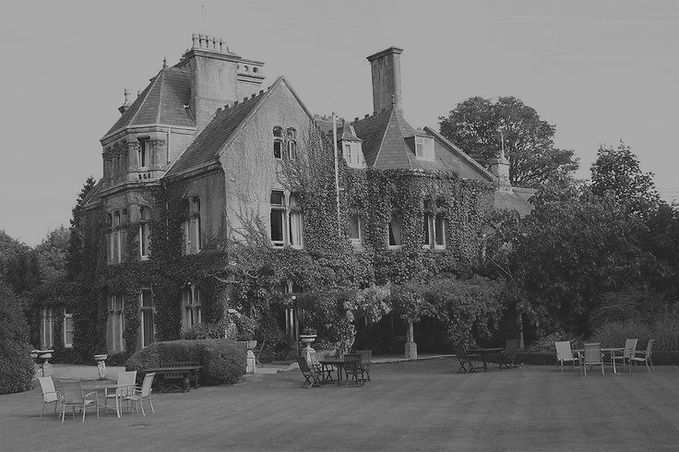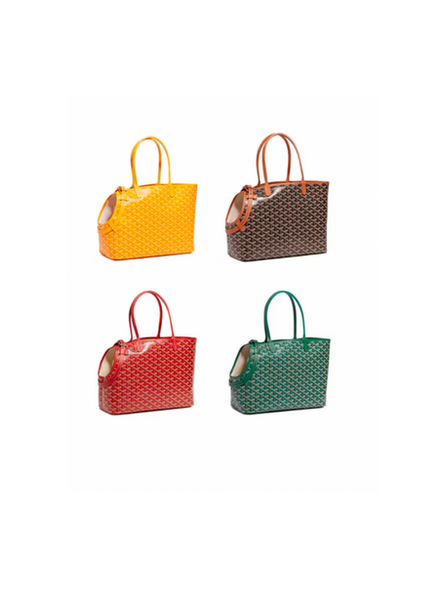VOL. I
GENTLE DOGS AND
THEIR PEOPLE

UNRAVELLING RUDLOE ARMS...
By Luisa Adems
England is a blustery, beautiful and bold country. Its landscape is divided by an intricate, particular elegance, and a rugged, bucolic lifestyle. These ways of living are rarely joined together, but when they are, an original concoction is produced — heartfelt, yet acerbic, a dash of sprezzatura though phlegmatic. Perhaps it is like this with any country comprised of its own two emotions, but there is something about England, and we all feel it.
The epicenter of such vastness is perfectly set forth in Hotel Rudloe Arms. Located in Corsham, just outside Bath, it is a sprawling landscape of flora, fauna, and that blessed in-between, the emotional tonic we all crave to find. The hotel’s exterior is nearly overtaken by vines, a trinity of green, red and threads of orange climbing its facade. Elements of it remind one of a Chateau, sitting proudly on its 14 acres, its grounds an extension of an otherwise singular ode to Victorian England. Digging deeper, Rudloe appears to lie on “the crest of a hill,” offering a view from above of Box Valley (allegedly, there is a banana tree on the property within the ‘secret garden’). The hotel is a total of 10 rooms, never mind its extension, yet its grounds seem to find their truest harmony alongside the food, and the ‘history’ behind each carefully curated dish.
.jpeg)
Rudloe has been used as a stopping point since 1961 however its renovation came about under the hands of Marco Pierre White, who once used his keen sight and touch in the old-world art of gastronomy. Known by many names — “Enfant Terrible” amongst them —White had lived in that divided world for some time, for gastronomy is indebted to a bucolic outlook, and yet it strives for the elegance it has since become known for.
In a sense, White was just the same. His origins are in the small town of Leeds, where he passed his boyhood fishing and watching his father bet at the races. He loved the countryside, but innately knew there was no great ladder to climb amidst the forests and hills. He traveled to London, and began honing his skills in the kitchen under the watchful eyes of culinary masters — Pierre Koffman, Raymond Blanc, Nico Ladenis, and Albert and Michel Roux. He calls them all, quite fittingly, “The Godfathers” of the culinary world.
White wrote an autobiography, The Devil in The Kitchen, but not before a book about him already existed under the title White Heat. Photographed by late celebrated lensman Bob Carlos Clarke, it chronicles White’s time in the kitchen through a series of gritty black and white film intercepted by recipes and glimmers of the chef’s sarcastic wisdom.
Anthony Bourdain spoke of the book as a quintessential coming of age treat for everyone who wished to cook. Marco Pierre White would go on to be the youngest chef ever to claim three Michelin stars; he remains the only chef to have given them back. Why? Because he longed for the other side of England once more. Here we come full circle again, back to a natural landscape. England’s countryside is a paradise to many.
Authors have claimed it as the setting for romances and fictional family dramas, painters have ridden in carriages to set an easel on one of many sharpened inclines. Films have captured the stark essence of a boundless world overrun and riddled by clarity underneath the heavens. In these same ways, White has found a paradise.
For all his time behind a stove set ablaze, White has emphasized the power of simplicity and his belief in nature, specifically mother nature. “Within my world it’s about respecting that mother nature is the artist, I’m just the cook,” he said to a room full of Oxford students one day. “Allow her to present herself. Why do you want to take something and turn it into something it’s not?”
Hotel Rudloe Arms is the mother nature White has sought out and spoken of. Gently cradled in objects and art, food and gardens, and lead by a man once renowned as a gaunt Rossetti figure in Michelin restaurants now resembling a philosophy professor.
If one were to trace White’s earliest restorative efforts, the constant presence of a companion becomes undeniable — a whippet named Clive. Not only embodying White’s own persona, Clive embodied the beginnings of Rudloe, and the far reaches of England’s divided personality.
Known for speed and agility, Whippet’s are just as much known for their slender legs, and innate elegance. The breed is often compared favorably to greyhounds, and are bred in a variety of colors.
Clive’s snowy face and wispy beard are photographed poking at wildflowers, sitting outside the doors of Rudloe in evening’s shadows, sitting beside his master, the two seemingly cut from the same mould as they stare into the camera.
As whippet’s age, they take on a sagacity; their hair grows longer in places, their limbs thin, and their feet carry a new sense of security. The spryness that dominated their youth is replaced by careful steps, and an eye for the world through their often glassy eyes. Their energy is no longer used for running, but nurtures their ability to observe the silence of a moment, and to take in, with their often heightened smell, the realm around them.

The same could be said for White. Once plagued by the simultaneous noise of voices and chinaware, the heat of an oven encompassing him, the shouting commands at the edge of his lips, to Rudloe.
Or as he said perfectly, some time before the Hotel and Clive: “I spent my days on the riverbanks, in the woods, in the fields…I unravelled everything within my self.”
Images do not belong to Mister Barker, Rudloe Arms is not affiliated with Mister Barker, this is an experimental journalistic piece.
OF BEING
AND LIVING...
A special edit for you and your best companion








